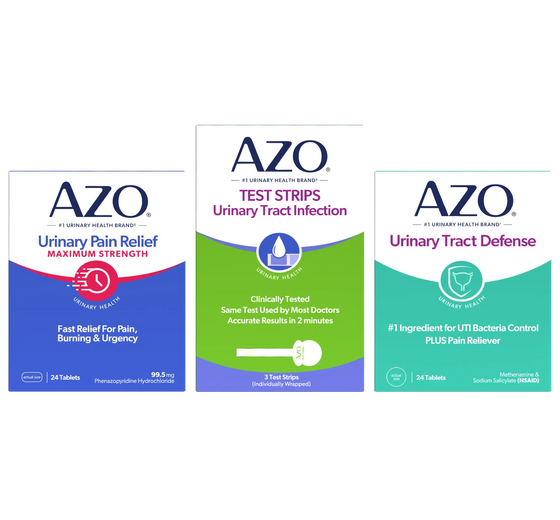
You’ve likely heard that stress can affect your health. But many women don’t realize just how much stress can affect our bodies, specifically our feminine health.
When it comes to women’s bodies, stress can lead to:
- pH imbalance
- Vaginal or urinary infections
- Increased risk of sexually transmitted infections
- Changes in vaginal discharge
- Decreased sex drive
- Irregular periods
- Fertility issues
- Increased menopause symptoms
It’s important to understand this connection between stress and your health so you can listen to your body and be more proactive about your health.
Vaginal pH & Infections
Your vaginal pH is such a delicate balance. It can be disrupted by hygiene products, sex, menstruation, antibiotics, and yes - stress.
When you’re stressed, your body releases stress hormones that can decrease lactobacilli bacteria, an essential good bacteria for balancing your vaginal pH.
This imbalanced pH can quickly cause vaginal infections like:
- Yeast infections
- Bacterial vaginosis (BV)
- Trichomoniasis
That same imbalance can impair your body’s ability to fight off sexually transmitted infections, potentially making you more susceptible to them.
Vaginal Discharge & Dryness
Stress raises your cortisol levels, which causes your estrogen levels to drop. This disrupts your vagina’s natural cleaning process and causes your vagina to produce more discharge.
On the other hand, stress can also lower blood flow to your vagina, resulting in vaginal dryness, less natural lubrication, and decreased sex drive.
Periods & Fertility
As we’ve mentioned, stress affects your hormones. Your period and fertility are highly dependent on your hormones. Changes in cortisol, estrogen, and other reproductive hormones can cause missed periods, longer or shorter periods, spotting between periods, changes in blood flow and discharge, mood changes, and more.
More chronic stress that affects your hormones long term can not only lower your sex drive, but it can even interrupt the signals between your brain and reproductive system that trigger ovulation. Even if you’re already pregnant, stress can cause complications.
Menopause
Menopause can be a stressful time for women already. But women who are more stressed can often have worse menopause symptoms, and may even enter menopause at an earlier age.
Higher stress levels during menopause can worsen the following common menopause symptoms:
- Memory, concentration, and brain fog
- Mood
- Hot flashes
- Trouble sleeping
For more help with understanding and managing menopause, check out our sister brand Estroven®.
How to Combat Stress
The potential causes of stress are endless, so it’s hard to give general advice that works for everyone. There’s a lot of information about “self-care” out there, and some of it is great advice while some is just more work.
If you’re experiencing chronic stress that’s leading to changes in your body, your best bet is to talk to a mental health professional. They can help you pinpoint what stressors in your life are most detrimental and work with you to address them.
If you’re looking for other actionable steps to help reduce daily stress, here are a few of our favorite tips:
- Start journaling - It might sound cheesy, but something about physically writing out your thoughts can help clear your head. You don’t have to write perfectly. You can brain dump any thoughts that are cluttering your mind, or write lists of the things you’re grateful for.
- Get outside - Go for a hike, take your hot girl walk, or even sit outside to read. Getting sun and fresh air can help improve your mood.
- Find your own way to meditate - Sitting quietly and focusing on breathing works for many people, but it’s not the only way to meditate. Reading, cooking, exercising, or listening to music are also ways to help clear your head of stressors and escape reality for a bit. Find an activity that works for you
- Be proactive - Talk to your healthcare professional about over-the-counter products, including supplements that may help support feminine microbiomes.








